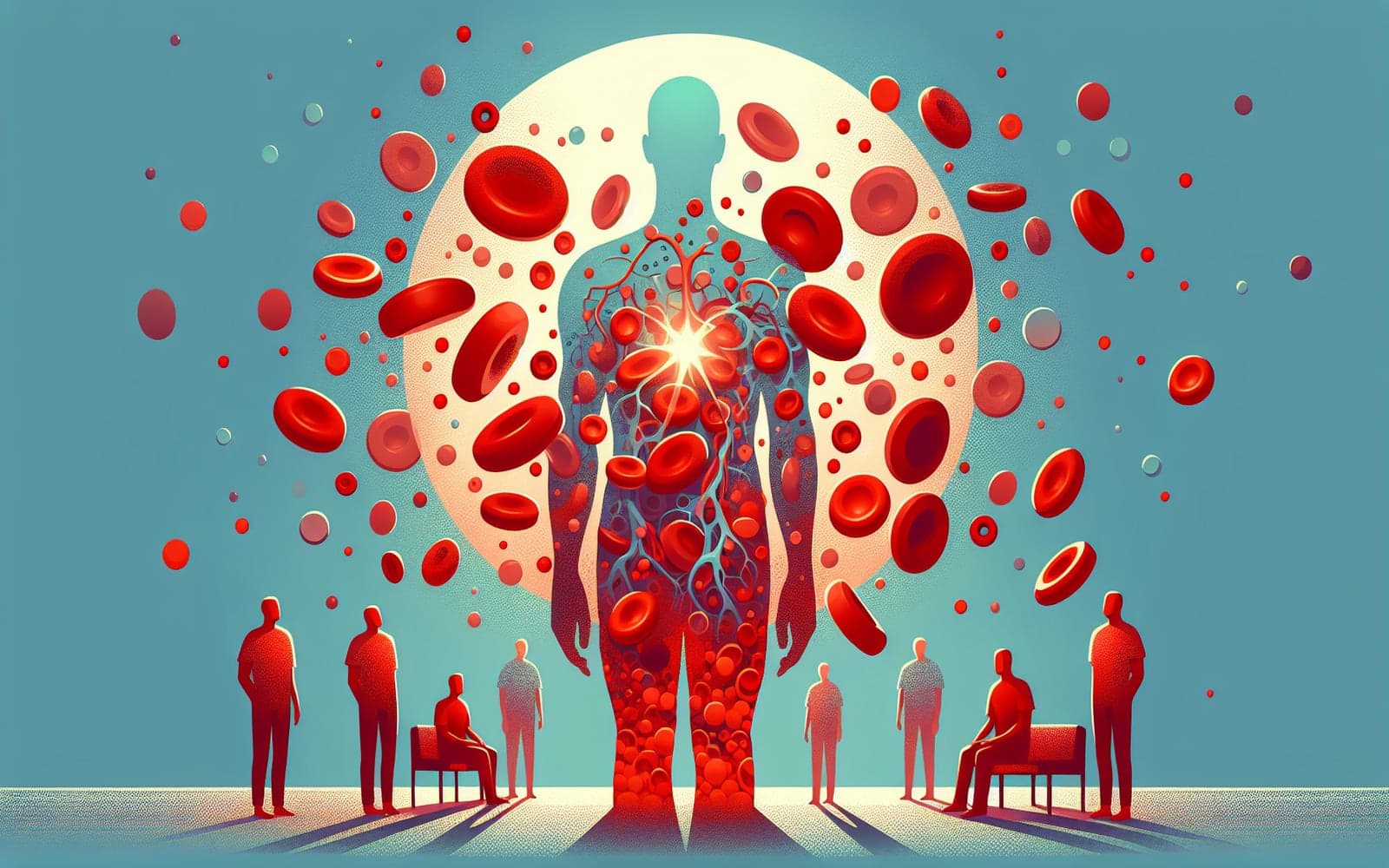What is Erythrocytosis? Understanding the Red Blood Cell Overload
Published: May 22, 2024

Medically reviewed by Alan Lucks | MD, Alan Lucks MDPC Private Practice - New York on May 22nd, 2024.
Erythrocytosis, also known as polycythemia, is a condition where your body produces too many red blood cells. This can lead to thickened blood and potential health complications.
Contents
Signs and Symptoms
Erythrocytosis often doesn't cause noticeable symptoms at first. As it progresses, you might experience headaches, dizziness, or blurred vision. Some people feel itchy, especially after a hot shower. In severe cases, you could have chest pain or trouble breathing. These symptoms happen because your blood becomes thicker, making it harder for your heart to pump.
Causes and Risk Factors
There are two main types of erythrocytosis: primary and secondary. Primary erythrocytosis is usually caused by a genetic mutation that affects your bone marrow. Secondary erythrocytosis happens when your body produces more red blood cells in response to low oxygen levels. This can be due to living at high altitudes, smoking, or certain lung or heart conditions. Some rare tumors can also trigger erythrocytosis by producing too much of a hormone called erythropoietin.

Diagnosis and Tests
If your doctor suspects erythrocytosis, they'll start with a blood test called a complete blood count (CBC). This measures your hemoglobin and hematocrit levels, which are typically elevated in erythrocytosis. Your doctor might also check your oxygen levels and order tests to measure erythropoietin in your blood. In some cases, genetic testing or a bone marrow biopsy might be necessary to determine the underlying cause.
Frequently Asked Questions
Not always, but it can be associated with certain blood cancers.
Some forms can be managed effectively, but others may require ongoing treatment.
It's relatively rare, affecting about 1 in 100,000 people annually.
Some forms can be prevented by managing underlying conditions and avoiding risk factors.
Key Takeaways
While erythrocytosis can be a serious condition, proper management and regular medical care can help many people lead normal, healthy lives.
Concerned about erythrocytosis? Talk to Doctronic about your symptoms and risk factors today.Related Articles
References
Keohane C, McMullin MF, Harrison C. The diagnosis and management of erythrocytosis. BMJ 2013; 347:f6667.
WHO Classification of Tumours of Haematopoietic and Lymphoid Tissues, revised 4th edition, Swerdlow SH, Campo E, Harris NL, et al. (Eds), International Agency for Research on Cancer (IARC), Lyon 2017.
This article has been reviewed for accuracy by one of the licensed medical doctors working for Doctronic. Always discuss health information with your healthcare provider.

